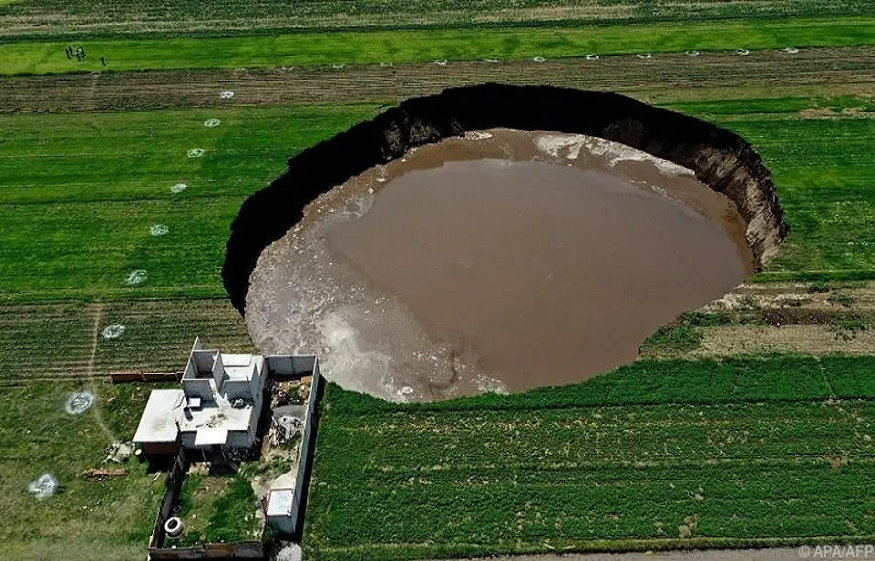In Atlanta, sinkholes are not just rare geological curiosities—they’re increasingly disruptive threats to residential and commercial properties alike. Caused by factors ranging from soil erosion to aging infrastructure and shifting ground layers, sinkholes require more than just a quick surface fix. The key to long-term safety and structural integrity lies in understanding the difference between engineered sinkhole remediation techniques like compaction grouting and superficial, temporary fixes such as basic fill methods.
While many property owners might be tempted to opt for the most convenient or affordable solution, the results of such choices can be costly in the long run. True remediation requires a professional assessment and a long-term solution designed to stabilize the ground beneath the surface—not just conceal the visible damage.
The Pitfalls Of Simple Fill Methods
Simple fill methods often involve dumping soil, gravel, or concrete into a sinkhole to patch it. This approach is quick, relatively inexpensive, and seemingly effective—at first glance. In reality, this method does little to address the root cause of the sinkhole. It may temporarily disguise the problem, but it doesn’t resolve the underlying subsurface voids or soil instability.
This kind of superficial repair may be suitable for very shallow depressions or in non-structural areas. However, in areas supporting buildings, driveways, or utility infrastructure, a fill-only solution lacks the depth, pressure, and control needed to create lasting stability. In most cases, the sinkhole reopens—sometimes within months—resulting in repeated repairs and escalating costs.
Worse still, temporary patching can lead to water infiltration, further soil erosion, and the expansion of the sinkhole beneath the surface. What might have started as a minor repair becomes a significant structural risk with potential impacts on foundations, plumbing, and more.
Why Compaction Grouting Stands Out?
Compaction grouting is an engineered solution that not only fills the visible void but also addresses the underlying ground instability. This technique involves injecting a low-mobility, cement-like grout mixture into the ground at high pressure. The material is placed in a controlled pattern to displace loose soils and compact the surrounding earth, thereby reinforcing and stabilizing the subsurface layers.
Unlike simple fill methods, compaction grouting requires geotechnical expertise and precise equipment. It is tailored to the specific conditions of the sinkhole—its depth, diameter, soil type, and proximity to structures. The grout is typically injected through steel pipes at various depths, allowing specialists to target and compact weak soil zones layer by layer.
This process restores the soil’s load-bearing capacity, prevents future collapse, and provides a reliable base for repairing or rebuilding above-ground surfaces. It’s especially critical for areas where homes, businesses, or public infrastructure are involved.
Engineered Vs. Temporary Solutions: The Real Difference
The essential difference between engineered approaches like compaction grouting and temporary fixes comes down to durability, safety, and performance. Professional contractors don’t just patch over a sinkhole—they investigate the cause, analyze subsurface conditions, and design a remediation plan that meets engineering standards.
In contrast, basic surface-level filling methods are typically used by general contractors or maintenance crews without a geotechnical background. While this might save money upfront, it often leads to future complications that cost far more in repairs, insurance claims, and property damage.
Atlanta’s varied geological makeup—ranging from clay-rich soils to underground water channels—means that a one-size-fits-all solution simply doesn’t work. Effective remediation demands both technical skill and local experience. That’s why homeowners and property managers are increasingly turning to Atlanta sinkhole remediation specialists for long-lasting, site-specific solutions.
Why You Should Choose A Professional Sinkhole Repair Company?
When it comes to protecting your property from the damaging effects of a sinkhole, professional intervention is not just recommended—it’s essential. Companies that specialize in compaction grouting bring more than just equipment; they bring engineering expertise, site analysis, and customized project management.
Hiring a professional sinkhole repair Atlanta team ensures the problem is diagnosed and treated with precision. From soil testing to grouting plan execution, every step is managed to restore stability and prevent future damage. In contrast, relying on generic fill techniques may provide temporary visual relief but does nothing to mitigate risk below the surface.
Moreover, engineered methods often come with warranties or performance guarantees, offering homeowners peace of mind that their investment is protected.
Final Thoughts
Sinkholes are a serious issue in Atlanta and demand a serious solution. While simple fill methods might be quick and easy, they fail to resolve the root causes of soil instability. Compaction grouting, on the other hand, offers a scientifically backed, long-term answer to sinkhole problems. By choosing a company that offers engineered sinkhole repair, you’re not just fixing a hole in the ground—you’re protecting your property, your investment, and your peace of mind. Don’t settle for surface-level fixes. Trust the experts in Atlanta sinkhole remediation to deliver stability where it matters most.



